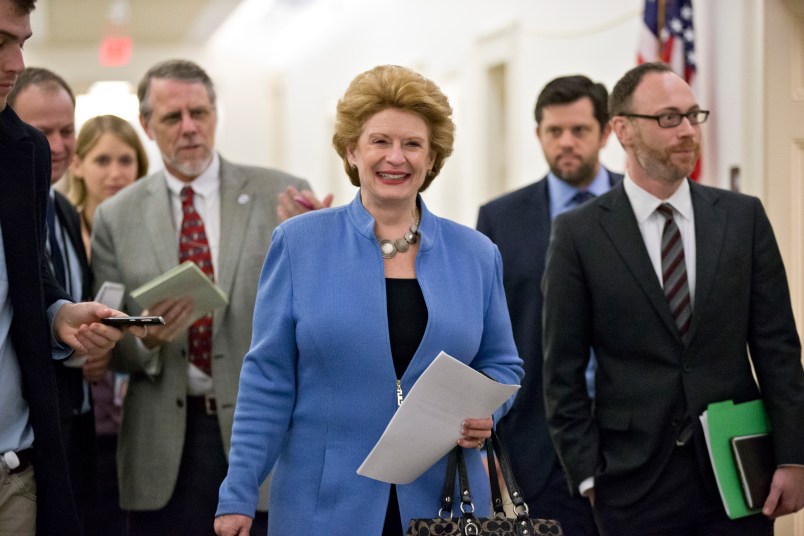The emerging deal on food stamp spending, part of the House and Senate’s ongoing negotiations over the farm bill, would include dollar savings, but would not kick anybody off the program — a far cry from the bill passed by the House GOP this fall.
The framework of the deal is a dramatic comedown for Republicans, especially in the House, which already passed $40 billion in cuts to the food stamp program in September. The total cuts in the new deal would likely come in less than $10 billion — Roll Call reported $8 billion as a possible figure Monday. It’s a slight come-up for Senate Democrats, who passed a bill with $4 billion in cuts in the summer. The bulk of the spending cuts would come from an administrative fix, according to sources familiar with the talks.
But importantly for Democrats, no one would be removed from the program’s rolls in the deal being finalized in the talks, being led by Senate Agriculture Chair Debbie Stabenow (D-MI) and House Agriculture Chair Frank Lucas (R-OK). The House-passed bill would have resulted in 3.6 million people losing food stamp benefits, according to outside estimates.
Specifics are still being ironed out, and the hope is that the committee will meet this week. Assuming that happens, the Senate could pass the bill before the end of the year and the House will follow suit when it returns in January.
The expected fix is complicated. States participating in a federal program that subsidizes home heating costs have been able to use that program to increase food stamp benefits for their poor residents. The loophole allows residents to claim higher utility costs which made them eligible for a corresponding increase in food stamps. The fix would effectively close that loophole, reducing the cost to the federal government.
Other smaller changes include preventing lottery winners from receiving food stamps, stopping college students from non-eligible families from enrolling in the program and nixing accidental payments to deceased individuals.
Critically for Democrats, none of those changes would result in anybody being kicked off the program.
It remains unclear whether there are enough Republican votes in the House to pass the deal. House GOP leadership appears willing to pass the bill with a significant number of Democratic votes, but whether they’d be willing to violate the so-called Hastert Rule (which requires a majority of the majority for a bill to move) is less certain.






